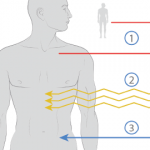Patients who Dr. Mayes thinks are good candidates are those with early disease within five years of disease onset, who declare themselves as having significant skin and internal organ disease, and who are not responsive to standard therapy. “If these patients have continuing disease involvement while on standard therapies, then it would be important to refer those patients to a center that is experienced with the high-dose chemotherapy and stem cell transplantation treatment approach,” she said.
Dr. Sullivan reinforces this message. “When a patient with scleroderma is referred for transplant consultation, the team will describe the procedure, risks and expected results,” adding that it is then in the hands of the patient, family and referring rheumatologist to determine the best option.
“It is shared decision making,” he says. “But if the patient never hears about the option from an experienced transplant team, they can’t make that informed decision.”
Mary Beth Nierengarten is a freelance medical journalist based in Minneapolis.
Centers with Expertise in Scleroderma Research & Transplantation
Reference
- Sullivan K, Keyes-Elstein L, McSweeney P, et al. Myeloablative autologous transplantation of CD34+ selected hematopoietic stem cells (HSCT) vs monthly intravenous cyclophosphamide (cyc) for severe scleroderma with internal organ involvement: Outcomes of a randomized North American clinical trial (abstract 6L). Arthritis Rheumatol. 2016 Oct 19;68(suppl 10).
- Sullivan KM, Shah A, Sarantopoulos S, Furst DE. Hematopoietic stem cell transplantation for scleroderma. Arthritis Rheumatol. 2016;68(10):2361–2371.

